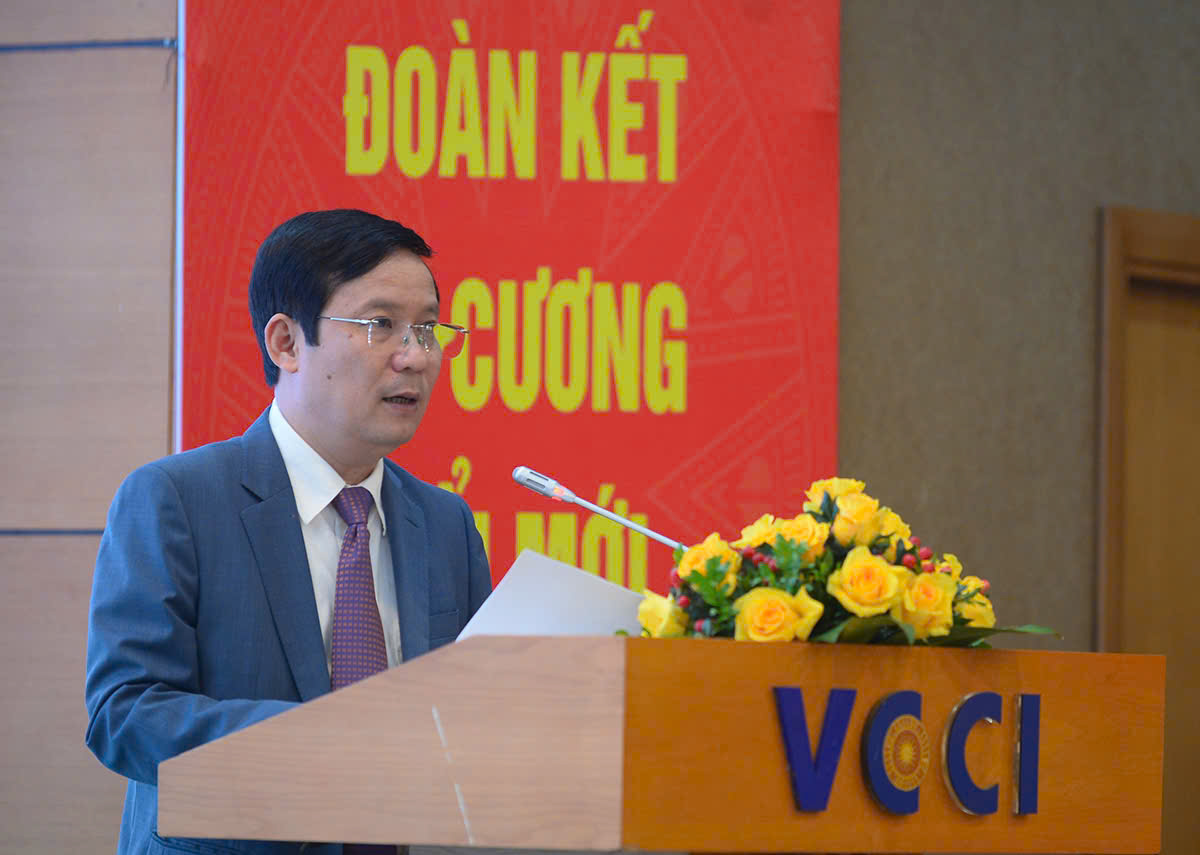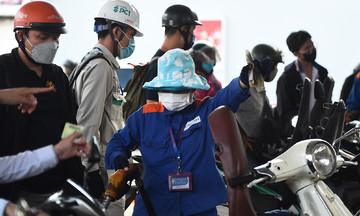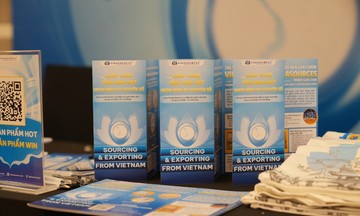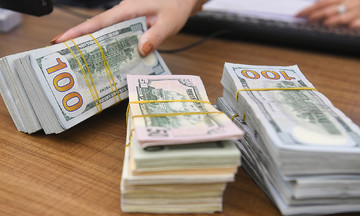At the "Green Logistics - Momentum in Volatility" forum on 11/7, Vietnam Chamber of Commerce and Industry (VCCI) Chairman Pham Tan Cong stated that ESG standards, Net Zero, and carbon border taxes are becoming technical barriers, forcing businesses to adapt to survive.
"Therefore, green logistics is no longer a choice, but a prerequisite for Vietnamese businesses in the global sustainable development strategy," he said.
Mr. Cong cited a survey by the VCCI's Business Council for Sustainable Development, which showed that global supply chains are placing increasingly higher demands on greening all links, including design, operation, procurement, logistics, and waste treatment.
Sharing the same view, a representative of the European Chamber of Commerce in Vietnam (EuroCham) pointed out the challenges Vietnam faces in accessing the EU market, such as unclear policies and a lack of synchronized infrastructure. However, he believes Vietnam has a golden opportunity to invest in a modern, efficient, and sustainable logistics system.
 |
Vietnam Chamber of Commerce and Industry (VCCI) Chairman Pham Tan Cong speaks at the forum on 11/7. Photo: Pham Minh |
Vietnam Chamber of Commerce and Industry (VCCI) Chairman Pham Tan Cong speaks at the forum on 11/7. Photo: Pham Minh
Logistics and transportation are major emission sectors, especially maritime transport, which uses and consumes large amounts of fuel. According to the International Maritime Organization (IMO), the fuel used must contribute to reducing carbon emissions, aiming for net-zero emissions by 2050.
In fact, green logistics is one of the pillars of the National Strategy on Green Growth for the period 2021-2030, with a vision to 2050. The Prime Minister's Decision 882 identifies logistics as 1 of 18 key themes of the National Action Plan on Green Growth. Among them, the green energy transition in the transport sector is a pioneering step.
At the forum, Tran Thanh Hai, Deputy Director General of Import and Export (Ministry of Industry and Trade), said that green logistics is an "economic shield" helping businesses cope with fluctuations in freight rates and fuel costs, and meet new carbon tax requirements from the EU market.
However, Mr. Hai also acknowledged that small and medium-sized enterprises still face difficulties due to asynchronous infrastructure, high investment costs, and a shortage of green transition experts.
To transition to green energy, Mr. Hai suggested that vehicles should use renewable electricity, hydrogen, and LNG. Businesses are also encouraged to switch to waterways and railways, which have large transport capacity. In addition, businesses need to optimize processes through larger-scale transportation, reducing empty runs, and building smart warehouses and ports.
According to the VCCI Chairman, the agency has developed the Corporate Sustainability Index (CSI) to support businesses in self-assessing their "sustainable development health". From there, they can develop action plans, improve weaknesses, and attract investment effectively.
From a business perspective, Yap Kwong Weng, CEO of Vietnam SuperPort, said that the core issue now is that the multimodal integrated logistics model needs to be promoted. At the same time, operators need to build sustainable policy and financial corridors to support businesses in implementing real transformation.
Vietnam SuperPort is implementing a new model in Vietnam, integrating air cargo terminals, bonded warehouses, regular warehouses, and cross-border transport solutions. According to Mr. Yap, this model is not yet common in the region but has the potential to create a "structural advantage" for Vietnam in the international supply chain.
"We are not following the traditional industrial park approach, but focusing on optimizing existing assets to increase operational efficiency," he said. For example, the system aims for cross-border connectivity, with transport routes running from China through Hai Phong port, creating a strategic advantage in the regional network.
Phuong Dung












